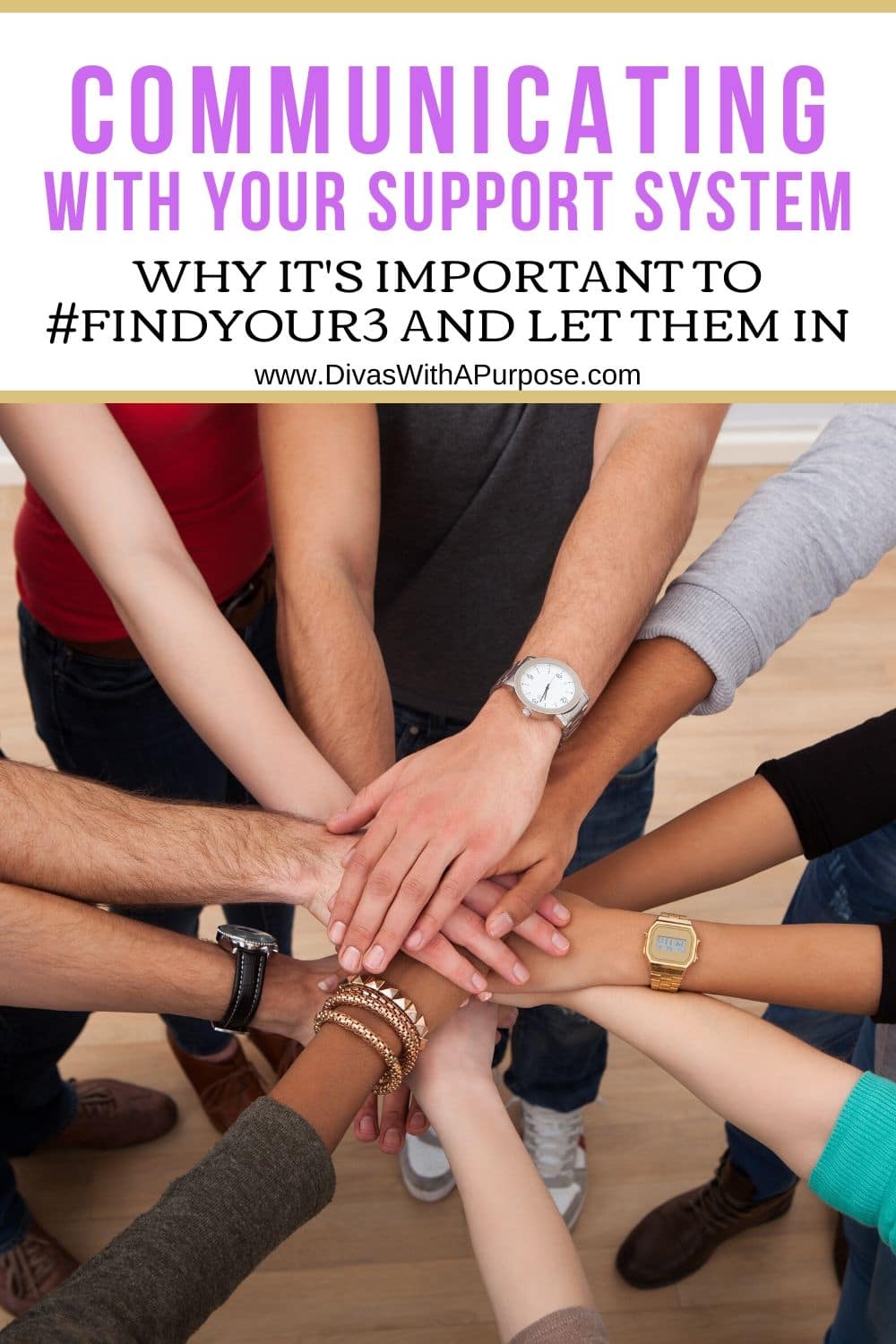Communicating With Your Support System
This post is made possible with support from the American Academy of Pediatrics through a cooperative agreement with the Centers for Disease Control and Prevention. All opinions are my own.
I recently did a Facebook Live discussing the importance of having a support system. The times we are in are difficult for many of us. We have added responsibilities and stressors that can lead to overwhelm, anxiety and depression. It’s giving all of us an understanding of the stress that some families were living under due to adverse experiences even before the current health crisis. We now all know how stressful circumstances can impact a family.

For children and adults with Adverse Childhood Experiences, there is an increase of mental, physical and emotional problems later in life. Adverse Childhood Experiences (ACEs) is the term for types of adversities children may experience before their 18th birthday: physical, sexual, or emotional abuse; emotional or physical neglect; mental illness in household; alcohol and substance use in household; witnessing intimate partner violence in the home; having a parent or family member incarcerated; parent separation or divorce; and death of a parent or sibling. Did you know approximately two-thirds of adults have experienced at least one ACE in their lifetime? And the more ACEs a child experiences, their risk for mental, physical and emotional problems increases.
The Importance of Your Support System – #FindYour3
It is important to create safe, stable, and nurturing relationships and environments in childhood. This habit stays with us throughout our lifetime and are essential to lifelong health, success and the prevention of ACEs.
You may remember that I discussed the importance of letting others in, being intentional about creating connections and identifying three people or resources to rely on in this article last year. Those three will help us create and maintain safe, stable and nurturing relationships and environments.
Your three can be a combination of people, groups, and resources that you can lean on. My three include my medical team, my circle of girlfriends, and my online community. I share why each of these groups is important and essential to my well-being in my Facebook Live. I know it can be difficult to ask for help, yet asking for help is not a sign of weakness, it’s a sign of trust. My challenge to you is to determine who are your three. Below are three things to consider as you #FindYour3. Let me know in the comments of the video shared above by commenting and including the hashtag “#FindYour3.”
Conversations to have with Your Support System
It is important to let your three know that they are a part of your system. This lets them know that when you are reaching out, there may be a specific need. That may mean setting up a special word or signal to let them know you need them. This also allows them to be attentive to your actions (or inactions) to see if there are shifts that need to be addressed.
For those that we support, it’s important to not confuse being supportive with having to always take action. Sometimes others need to know that someone is willing to just be there.
How to Reach Out to Your Support System
Often we will have the support systems, but we don’t have the conversations so they’re able to help and assist us when we need it. I don’t like to use the word “simple” because depending on where you are simple just isn’t simple. This is where we have to take ownership and reach out even if we’re uncomfortable. It is best to share with your support system beforehand what you need and the ways they can help.
Simple Asks from Your Support System
Now that I have had conversations with my support system, they now know how I need them to show up for me. The simple asks that we can start with include:
- sending a text just to check-in
- if texts go unanswered, pushing the envelope and calling
- noticing if I’m missing in action from regular online activities.
Also, realize that just as you have your three, that you may be a part of someone else’s support system. Be aware of those who depend on you and be open about boundaries that need to be established.
Here’s the eye-opening thing for me with #FindYour3 and its impact on reducing ACEs. If we are creating this routine for ourselves AND our children, we are impacting the overall mental and emotional legacy of our families. It really is that important and necessary.
